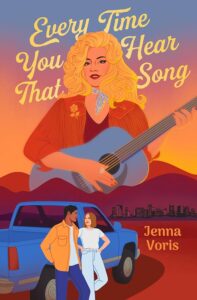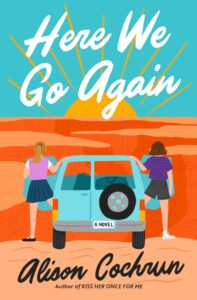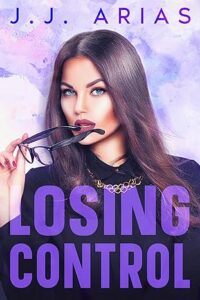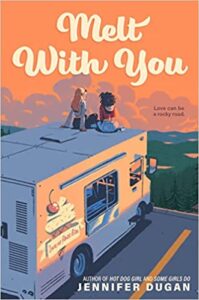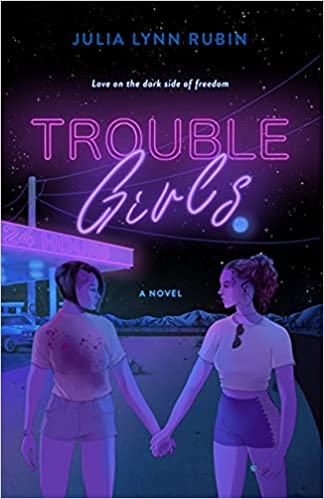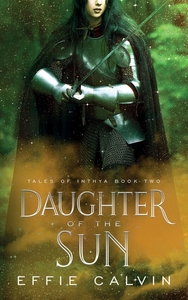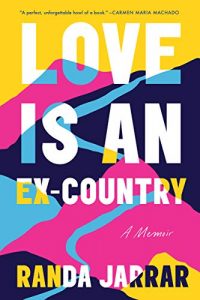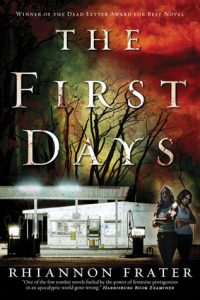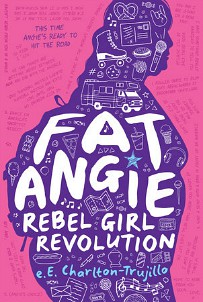Buy this from Bookshop.org to support local bookstores and the Lesbrary!
I won’t be able to get through this review without mentioning The Seven Husbands of Evelyn Hugo, so let me get the comparison out of the way now. Like Evelyn Hugo, this cover likely doesn’t scream “queer story,” but it is—twice over, actually. Like Evelyn Hugo, we’re alternating between two stories, one of which is an ambitious queer woman trying to make it in an industry and time period that required being closeted. I’m definitely tempted to recommend this one to fans of Evelyn Hugo, but it has some big differences, not least of which is that this is a young adult novel.
Our main character is Darren, a seventeen-year-old aspiring journalist who can’t wait to get out of her hometown of Mayberry, Arkansas. The only thing Mayberry ever produced to put it on the map is country music legend Decklee Castle—and Decklee left as soon as she could. Darren and her mother are big fans; her music helped the two of them get through her mother’s cancer treatment. When they watch Decklee’s televised funeral, they learn that she put together a treasure hunt to begin after her death. The prize at the end is three million dollars and a new album of Decklee’s music—enough money to pay off Darren’s mother’s medical debt and get her into a good university. So she convinces her coworker with a car, Kendall, to come with her to decipher the clues hidden in Decklee’s lyrics. Meanwhile, we flash back to Decklee’s life, beginning with her running away from her childhood home in Mayberry in the middle of the night.
Last time, I promise: like Evelyn Hugo, Decklee Castle is a fascinating character. She’s ruthlessly ambitious and loves nothing more than to be on stage. She’s willing to sacrifice a lot—almost everything—for fame. When she and songwriter Mickenlee Hooper fall for each other, she goes to great lengths to conceal their relationship from the press. Decklee isn’t a likable character. She’s believable, but she’s not exactly sympathetic. To be honest, I find that refreshing in a queer character. Decklee is talented and hardworking, but she is also callous and selfish. Darren considers her a role model because she got out of Mayberry and also because Dareen suspects Decklee was queer and Darren is trying to come to grips with her own bisexuality. The more she learns about her, though, the more she begins to realize that her image of Decklee isn’t true to life.
While we alternate between Decklee and Darren’s perspectives, this is Darren’s story. As Kendall and Darren spend more time together, Darren begins to see him in a different light—and she’s surprised that he sees the good in Mayberry. In fact, he’s offended that she seems to hate it so much. He points out that she’s buying into racist and classist narratives about the South and argues that she loves Mayberry, that you can see her passion for their hometown in her writing about it. As they fall for each other, this tension between his commitment to stay and her determination to leave simmers underneath the surface.
I could easily pitch this as a road trip story, a scavenger hunt, a tell-all about a fictional celebrity, but that doesn’t really match the vibes. Above all, this is about relationships, ambition, and what you’re willing to sacrifice to get what you want. While both Decklee and Dareen have love stories, this isn’t a romance. It’s bittersweet, and Decklee’s story is a warning for Darren.
I think the way these stories play out together is really well done, and I liked Dareen’s subplot of coming out as bisexual. Both couples in the alternating timelines have interesting dynamics, and Decklee’s friend Marquel1 was a breakout character, especially as he shows an alternate approach to being queer in an industry that does not accept that. I listened the audiobook, and I think it works well that way: there are two different narrators, so it’s easy to keep the stories separate. I highly recommend this one.
- I listened to the audiobook, so I’m not sure if that’s how you spell it. ↩︎

